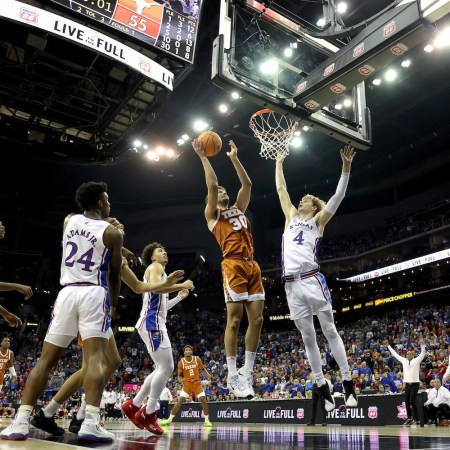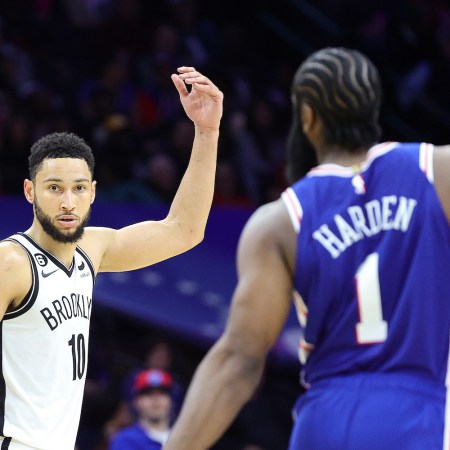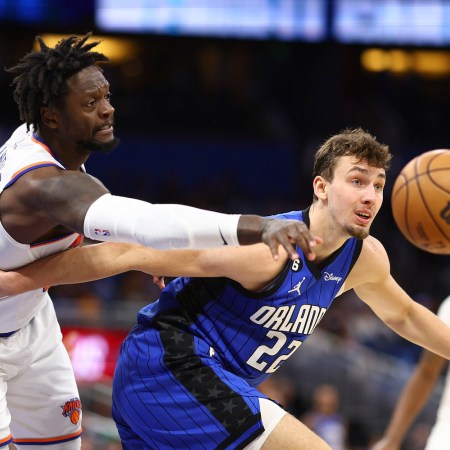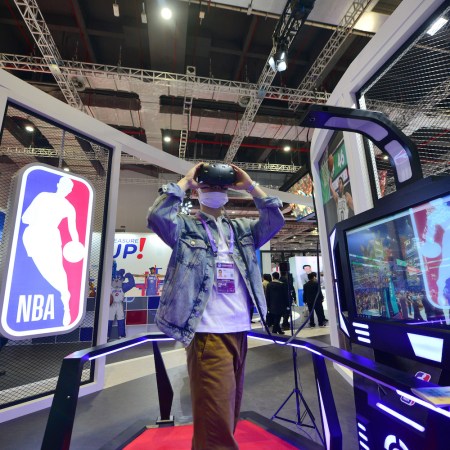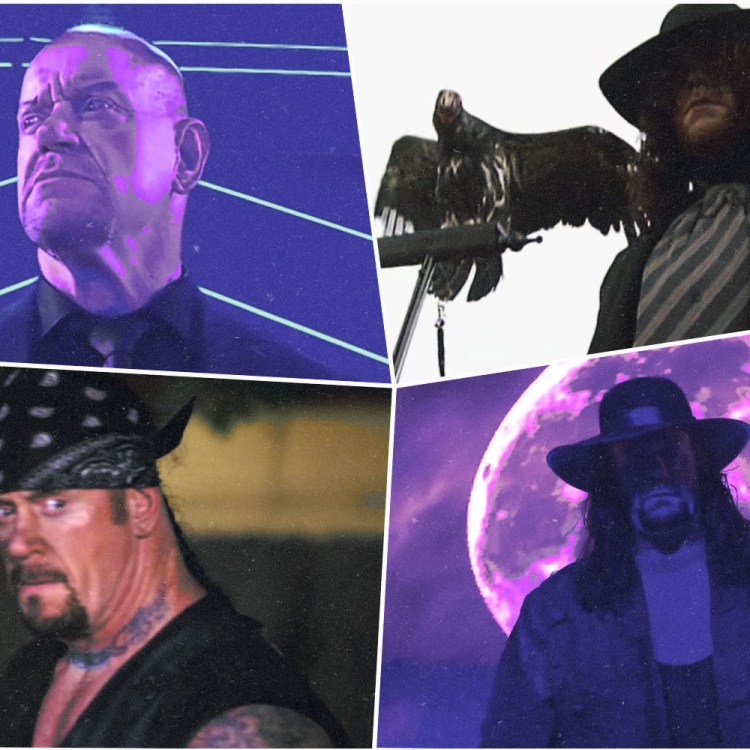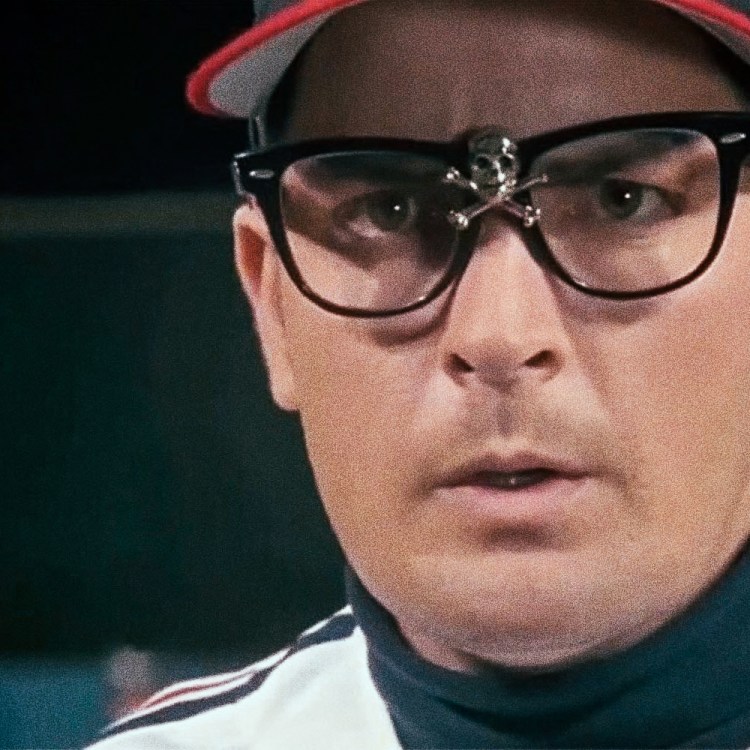According to a recent profile in The Athletic, the James family unit — LeBron, Savannah and longtime friend/business partner Maverick Carter — have been “nothing but fantastic to deal with,” as college coaches have inquired into the future of Bronny James, now in his senior year at Sierra Canyon School in Los Angeles.
Scouts seem to particularly appreciate the elder James’ simple approach and attitude: “Coaches believe LeBron longs for Bronny to be coached, and coached properly, and that LeBron understands where his son falls in terms of talent…[he’s been] ‘as low maintenance as a megastar can be.’” It’s refreshing to hear, in an ecosystem where guardians of hyped recruits often make bold pronouncements on Instagram, claw their way to airtime on ESPN’s First Take, or accept cash under the table to guarantee a commitment.
And it makes it all the more surprising that in February of this year, James announced his intentions to finish his legendary career on the same roster as his firstborn. He didn’t so with hopeful, daydreamy diction, either. The sound bite was resolute: “My last year will be played with my son.’’
For sports fans tangentially aware that A) James is getting older (he turns 38 next month) and B) his son has turned out to be pretty good at hoops (his consensus class rank is 45), this plan seems plausible and exciting.
After all, James famously spends $1.5 million on his body each year. Why shouldn’t he be able to make like Tom Brady and play into his 40s? And what’s stopping Bronny from becoming the latest son of an NBA player to make the League? There have been over 100 pairings over the decades, and the reigning champions, the Golden State Warriors, featured four such players on its Finals roster: Steph Curry, Klay Thompson, Andrew Wiggins, Gary Payton Jr.

None of those sons ever played in an actual game with their fathers. In fact, no father-son duo has ever accomplished that feat in NBA history; it’s understandable that it would mean something to James — who has openly spoken about growing up without a father — and perhaps more than any of the accolades in his trophy chest.
But from an objective, Bronny-centric, talent evaluator’s perspective, this Ken Griffey-inspired timeline is tricky…and its existence is completely unnecessary. As one coach said to The Athletic, speaking anonymously: LeBron’s plan “complicated everything.”
Bronny is talented, make no mistake. Insiders extoll his on-ball defense, high IQ and versatility to either bring up the ball or spot-up in the corner. He doesn’t have a turnover problem, as most young guards do, and lets the game come to him. Ultimately, experts frame him as the sort of guy you’re just happy to have around a ballclub: “You have to like him for who he is…he makes his team better.’’
Most college coaches would line up for a hungry, four-star, two-way guard recruit who’s likely to sit most of freshman year, rack up minutes off the bench sophomore year, then compete for conference distinctions junior year and beyond. That’s the sort of glue guy who could help the program slow-burn some chemistry, the right way, and eventually string together some wins in March Madness. If he’s developed enough individually along the way, a second-round selection could be waiting after his third season…and eventually, role player salaries of at least $10 million a year in the League. As far as hoop dreams are concerned, that’s a very good life!
But Bronny’s last name is James, and it’s unlikely that fans — much less the sports media industrial complex — will tolerate a boilerplate journey to the bigs. When Bronny visited Ohio State last month (on his recruitment list with Michigan, Kentucky, Memphis, Oregon, UCLA and USC), the crowd at Ohio Stadium started screaming “We want Bronny!” over and over again. Imagine that frenzy when it’s actually basketball season, and Bronny is sitting on the bench. What will that do to his psyche? How will that impact his relationship with a coach?
The expectations are too high, and especially if casual fans can’t be expected to understand what sort of player Bronny projects to be. He deserves all the credit in the world for getting this far — it can’t have been easy, no matter the resources or genetics he’s had at his disposal. But he has some work to do if he’s going to drop 40 points in The Garden one day, much less in Rupp Arena.
That work could be done in the NBA’s fledgling minor leagues, as a prospect for the developmental G League Ignite. (It’s attracted bigger names in recent years and would pit Bronny against professional talent, while shielding him from the burden of pleasing a college campus.) He could also play overseas. Or train off-screen, in gyms, until he’s ready to do any of the above.
At the end of the day, though, Bronny just needs time. His dad’s contract expires at the end of the 2023-2024 season. That also happens to be the year LeBron turns 40, and Bronny is first eligible for the NBA Draft. If Bronny were actually the Chosen Son to dad’s Chosen One, it would be one of the best stories in the history of sports. But that’s simply not the case, and Bronny deserves a chance to develop at his own pace. Let the kid reach the League on his own merit — not suit up for two or three made-for-Twitter moments years before he’s ready.
Thanks for reading InsideHook. Sign up for our daily newsletter and be in the know.

